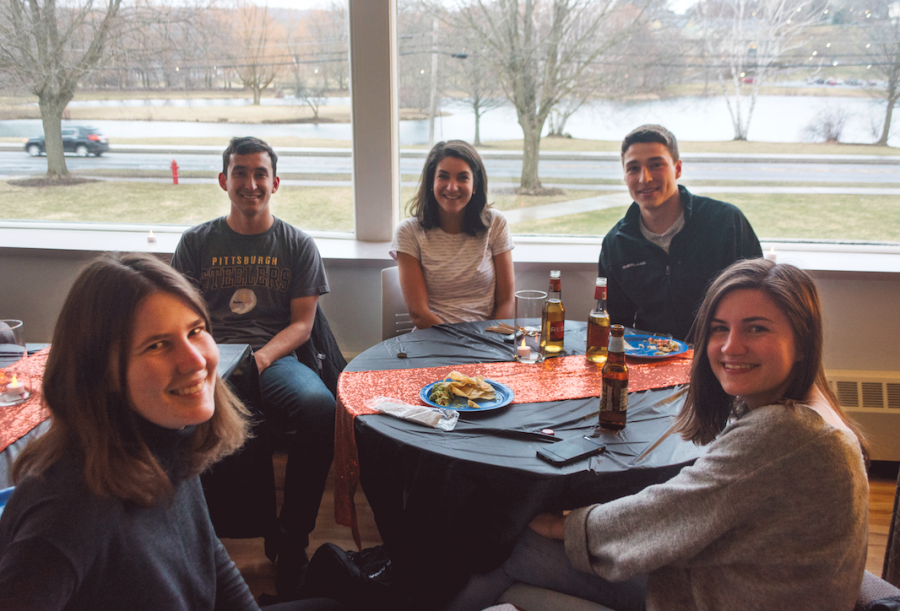The Difference Between Truth and Belief: Hancock Commons Speakeasy
Students and Faculty attended Hancock Common’s Speakeasy on Thursday, March 28, to discuss the topic of truth in various forms.
Hancock Commons presented another installation of their Speakeasy series this past Thursday, March 28. The series, organized by Spencer Kelly of Colgate’s Department of Psychology and Brain Sciences, aims to facilitate discussion between faculty and students to break down the perceived hierarchy of the classroom over free food and drinks. Thus, it was held in the lounge area of the Hancock Commons social house with candles lighting the room and free alcohol for those of age.
In his opening remarks for this week’s topic, “Truth? or truth? Why do we care,” Kelly emphasized that this was a no-judgment zone and that everyone was free to share their thoughts.
“It’s best if we embrace that view. It’ll help us listen better and have many more interesting discussions,” Kelly said.
Then, as the attendees finished their Tex Mex dinner, Kelly introduced Associate Professor of Philosophy David Dudrick and Associate Professor of Religion Jenna Reinbold. Dudrick opened the conversation by adding to Kelly’s remarks about the distinction between the nature of the Speakeasy and classroom discussions.
“I’m going to tell you what I think in a way that I wouldn’t tell you what I think in a classroom because it doesn’t really matter what I think in the classroom. I think what we’re there to do is kind of get together and think through ideas,” Dudrick said.
Dudrick went on to charismatically outline his three conclusions on the night’s topic on truth. He first made the distinction between Truth and belief, emphasizing that they are not the same thing.
Dudrick then answered the question “Truth? or truth?” by saying that he does not truly see a distinction. He only believes in one kind of truth—the kind that gets it right.
Dudrick went on to answer the final question of “Why do we care?” with his third point: The purpose and function of universities is to seek the truth and to teach others to do the same. He challenged attendees to think about their experiences at Colgate and determine if we have a diverse enough group of viewpoints to do this.
Professor Reinbold spoke next, commenting on her position in relation to Professor Dudrick’s points. Reinbold agreed with almost everything Dudrick said, except for his last point about the purpose of the university. Reinbold argued that the ‘capital-T truth’ is counterproductive.
“The kinds of things that we’re capable of even beginning to imagine that we can prove definitively as absolute truths are not things that are actually helpful for learning about human thought and expression,” Reinbold said.
Reinbold demonstrated her point with an example from her 2017 book “Seeing the Myth in Human Rights” about the discussion on whether human rights are true or not.
“To ask whether human rights are true is beside the point of every type of knowledge we might be able to gain about human rights,” said Reinbold.
Reinbold’s and Dudrick’s thoughts inspired comments from students and faculty of all concentrations, including Hancock Commons director and Associate Professor of History Antonio Barrera. After about 30 minutes of group discussion on truth, which brought to the surface ideas about human flourishing, reality and pragmatism, Barrera invited everyone to talk about the topic to different groups in the room and grab some more Tex Mex before heading out. At this end, the Speakeasy achieves its goal of eliminating the formalities of the typical student-professor relationship, as students walked up to faculty—burrito in hand—and gave their opinions just as easily and confidently as they did to their friends.
Contact Marissa Volkman at [email protected].
Marissa Volkman is a senior from Long Island, New York concentrating in English literature and double minoring in philosophy and writing and rhetoric....







